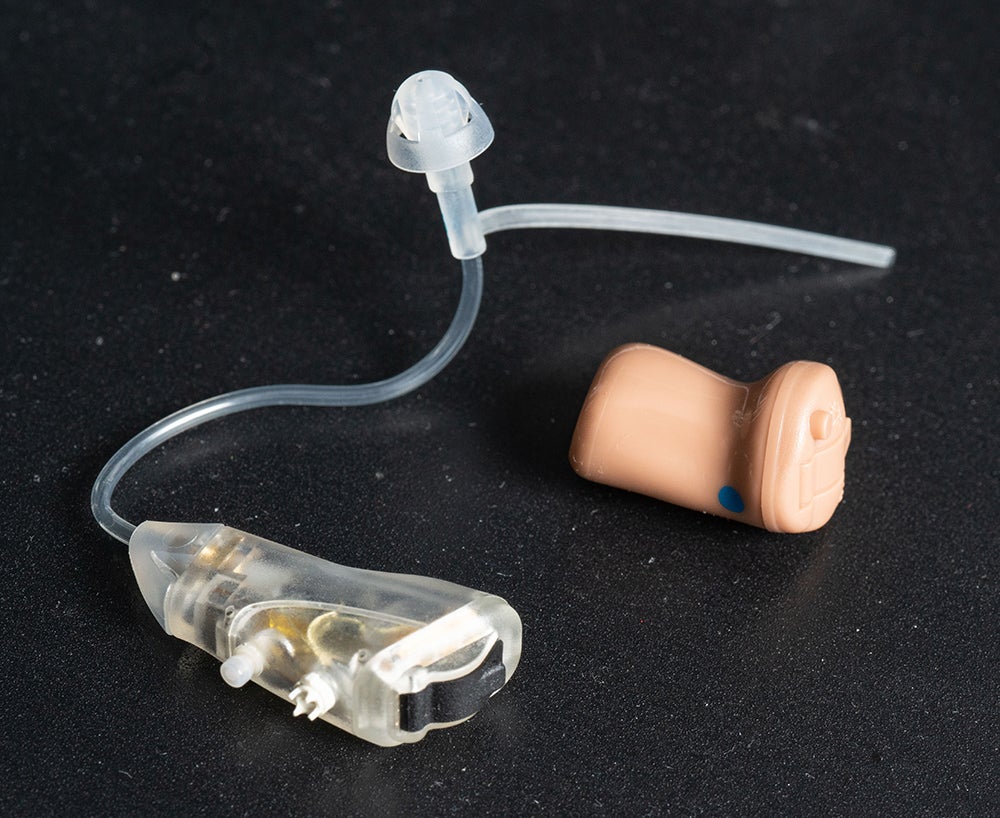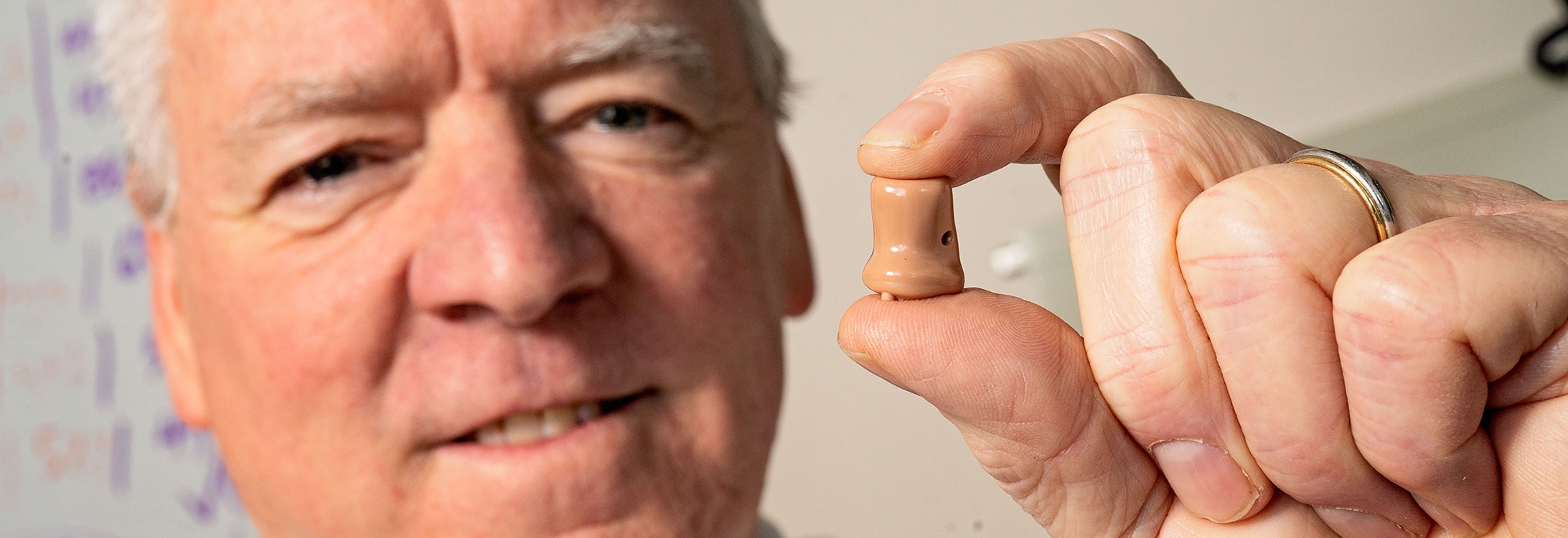INVENTOR HONOR
ECU professor honored by National Academy of Inventors
An ECU faculty member whose work has allowed thousands the ability to communicate normally was recently elected to the inaugural class of the National Academy of Inventors Senior Members.
Dr. Andrew Stuart, a professor in the College of Allied Health Sciences’ Department of Communication Sciences & Disorders (CSDI), is one of 66 members of the NAI’s first Senior Member class, joining fellow faculty members, scientists and administrators from NAI member institutions across the United States.
“The election of the inaugural class of NAI Senior Members is a significant designation for a group of prolific inventors from NAI Member Institutions who are collectively a driving force in American innovation,” said Paul R. Sanberg, NAI President. “This is truly an accomplishment worth celebrating.”
Stuart’s research has resulted in 25 issued national and international patents and resulted in new methods of treating fluency disorders. Most prominently, Stuart was part of a three-person team to create what became known as the SpeechEasy®Fluency Aid.
Along with former CSDI faculty Dr. Joseph Kalinowski and Dr. Michael Rastatter, Stuart began researching stuttering in the 1990s, and the group eventually found that altering the way a stutterer hears their own voice can improve their ability to speak normally. Conducting research using microphones, headphones and other equipment with stutterers, the three began working to learn if there were specific ways that were most effective in manipulating a stutterer’s voice to maximize the effect that helped their fluency.
Then, they had to figure out how to make it work without all the bulky equipment, which wasn’t practical for everyday use.
“It became apparent to us — and people involved in our studies would say, ‘Give me this, I need it’ — (that it would be helpful for stutterers) to have those effects,” Stuart said.
The resulting device, which fits into the user’s ear like a hearing aid, processes the user’s speech, playing it back on a slight delay and altering their voice to a different frequency, which allows those who stutter to speak normally.
On average, Stuart said, the ideal delay is about 50 milliseconds, and the ideal frequency change is a half of an octave, but the SpeechEasy® settings are specifically calibrated to each individual to accommodate what works best for them.

The SpeechEasy is worn in the ear like a hearing aid, and processes the user’s speech, playing it back on a slight delay and altering their voice to a different frequency, which allows those who stutter to speak normally.
“The device has both the capability to present the delayed auditory feedback alone, the frequency altered feedback alone, or both in combination,” he said. “It’s not a cure. It doesn’t work for everybody, but it’s highly successful in terms reducing disfluencies for 90-plus percent of people.”
The group then brought their technology to the university’s Office of Commercialization and Licensing, directed by Marti Van Scott, which helped to patent the product and license it to a company to market it. A representative for Janus Development, which has marketed the product since its inception in 2001, said the company has sold nearly 15,000 SpeechEasy® Fluency Aids. As the product became more widely available, the group was lauded in national media for their work, doing appearances on Oprah, Montel Williams and NBC Nightly News among others.
The technology pioneered by Stuart, Kalinowski and Rastatter has also been recognized as a treatment for Parkinson’s disease and as an effective method to improve reading comprehension for those with learning disabilities, which has led to the start-up Reading Comprehension Solutions that offers a device being piloted in schools in eastern North Carolina.
Stuart pointed to the honor from the NAI as recognition for his team, and emphasized the Office of Commercialization and Licensing’s role as an indispensable part of that team.
“It’s an individual recognition, but it highlights the team of Mike Rastatter, Joe Kalinowski and Marti Van Scott and her office,” Stuart said. “The work that they do with inventors at the university — their work can never be understated. If it’s not for Marti and her team, the ideas that we get would never be protected by patent, and it would never give the university the opportunity to license our intellectual property. It’s more of a team thing and it recognizes what the team’s been doing for 25-plus years.”
